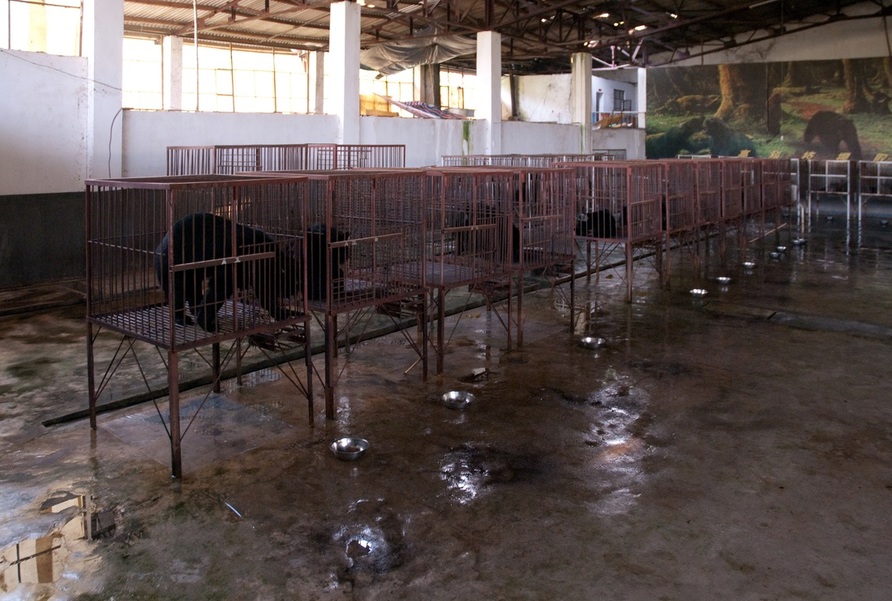The bear bile industry – unimaginable and unjustified suffering
The image ”10 Sun Bear Bile Extraction in Mong La, Shan, Myanmar” by Dan Bennett is licensed under CC Attribution 2.0 Generic
Bears are farmed for bile in China (mainly the provinces of Heilongjiang, Jilin, Sichuan and Yunnan) and Vietnam (mainly in Hanoi, Hai Phong, and Ha Long in Quang Ninh province) where more than 12,000 bears are held in captivity. Other countries with bile bear farms are North Korea, South Korea, Laos and Myanmar. Chinese bear bile farms are typically large, with thousands of bears, and they are often owned by major pharmaceutical companies. Most Vietnamese farms are small, family-owned enterprises, sometimes owning a single bear.
The bile is a fluid produced by the liver and stored in the gall bladder, and it is used in traditional Chinese medicine. Bear bile has been used in traditional medicines for thousands of years, but the bear farming began as an industry in the 1980s. There are several inexpensive and effective herbal and synthetic alternatives for bear bile, but despite of this the bile farming continues. Lately bear bile has also been used in other products such as wines, energy drinks, toothpaste, shampoo and eye drops. Demand for bear bile products comes mainly from China, Japan, Korea, Vietnam, Malaysia and Taiwan. Bear bile products can also be found in Australia, Indonesia, Laos, Myanmar, Singapore, the US and Canada.
The bile bears (mainly moon bears) are either bred on the farms or they have been caught in the wild in traps causing severe injuries – the bears often have a limb missing. The bears are kept immobile in cages that are barely the size of their body. Some bears stay in the same cage from cubs to adults and their bodies have contorted to fit the bars. Most bears have only a few teeth left due to literally trying to chew their way out, as well as self-inflicted wounds. The bears suffer from extreme pain an anxiety and they are constantly moaning and banging their heads against the iron pipes . Most bears are starved and dehydrated and suffer from many diseases, such as infections and tumours. They usually don’t get any medication, and sick or old bears failing to produce bile can be left to starve to death in their cages.
The captive bears are regularly ”milked” for their bile using extremely cruel and painful extraction methods, all of which cause massive infections and unimaginable suffering. Extraction methods range from “free drip” where the bear has a hole in its gall bladder, to the insertion of permanent catheters. The bears can spend up to 30 years enduring this horrific torture until the end of their lives. A number of bears are rescued by international charity organisations, such as Animals Asia.
